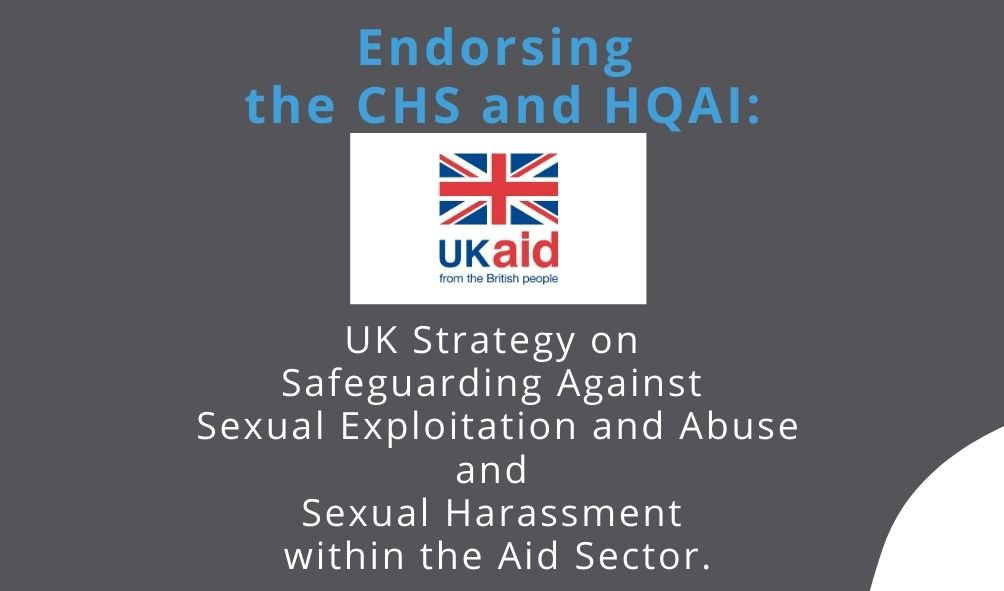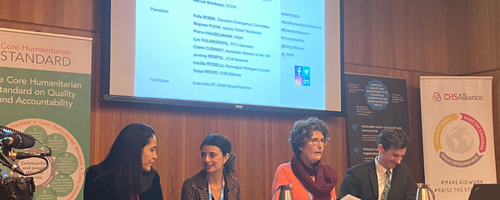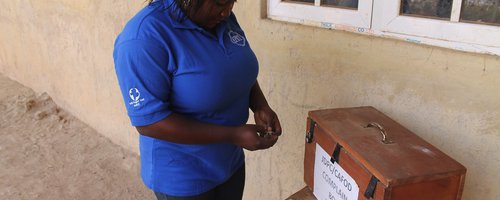UK Strategy on PSEAH endorses the CHS and HQAI
UK Strategy on PSEAH endorses the CHS and HQAI
September 2020
Sexual exploitation and abuse and sexual harassment (SEAH) undermines the aid sector as a whole and is absolutely unacceptable. The UK is committed to addressing the issue and has just published a Strategy on safeguarding against sexual exploitation and abuse and sexual harassment (The Strategy) which concerns all government departments that engage in delivering Official Development Assistance (ODA). The Strategy firmly endorses the CHS as a standard and HQAI as the body delivering verification against the CHS and improving capacity for local NGOs.
The UK Strategy on PSEAH
“(The Strategy) lays out the challenge, the UK’s vision, an evidence-based theory of change for the sector and, based on the theory of change, how we seek to achieve transformational change across the aid sector, within ODA-spending departments and across the UK’s ODA funding”, writes Sir Philip Barton, Permanent Under-Secretary, FCDO.
The relationship between aid provider and recipient, as well as relationships between staff or different genders, ages, nationalities and identities, are often rooted in unequal power dynamics. Evidence demonstrates that the aid sector must drive up standards and that the time to do so is now.
The UK is committed to engaging a) across the aid sector, within b) its own organisations and through c) its partners and programmes to contribute to a sector-wide shift and positive change.

The CHS and HQAI enter the floor
The UK lays out significant and straightforward Commitments and Contributions, among others:
“The UK will catalyse change within the aid sector to help to ensure that (…) organisations are accountable and have the leadership, capacity and capability to drive change and (that) global standards are met consistently.”
A wealth of levers will be used to do this, among which:
- “raising this issue on the international stage with partners and stakeholders (...)”
- “Endorsing international minimum standards on safeguarding and supporting organisations working to verify adherence. We have aligned with the (…) IASC Minimum Operating Standards on PSEA and Core Humanitarian Standard and will incentivise others to do the same.”
Further, the UK will ensure all UK ODA upholds the global standards on PSEA by, among others, “supporting the Humanitarian Quality Assurance Initiative (HQAI) to deliver verification of the Core Humanitarian Standard that provides quality assurance and helps to raise and maintain standards, improve transparency and improve capacity for local NGOs.”
This endorsement by the UK of HQAI as an independent auditor against the CHS is an important milestone in the collaboration between the Safeguarding Unit and HQAI over the past years.
Other News

Will ECHO accept HQAI as a suitable audit organisation for framework partnership agreements?
ECHO invites statutory ex-ante auditors to take into account the results of HQAI audits. We have strong arguments to go one step further and have HQAI actually conduct ex-ante assessments.

Harmonising donor assessments & CHS Verification
The CHS Alliance and HQAI held an interactive discussion at HNPW on how CHS verification can cover a substantial amount of donor due diligence.

CHS story of change series – CAFOD’s partnership model
Here CHS Alliance member CAFOD shares insights into how they are working with partners to meet Commitment Five of the CHS which states that communities and people affected by crisis have access to safe and responsive mechanisms to handle complaints.
Category